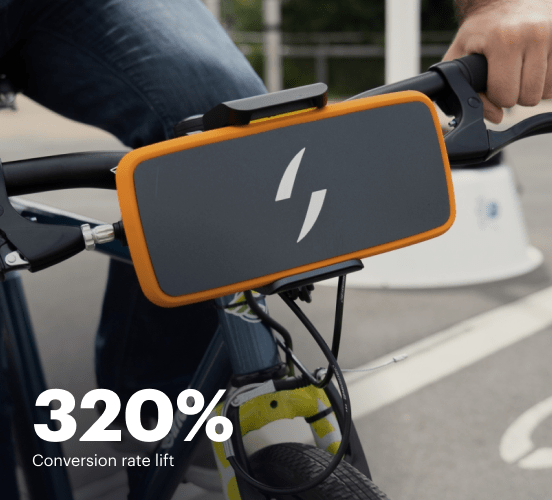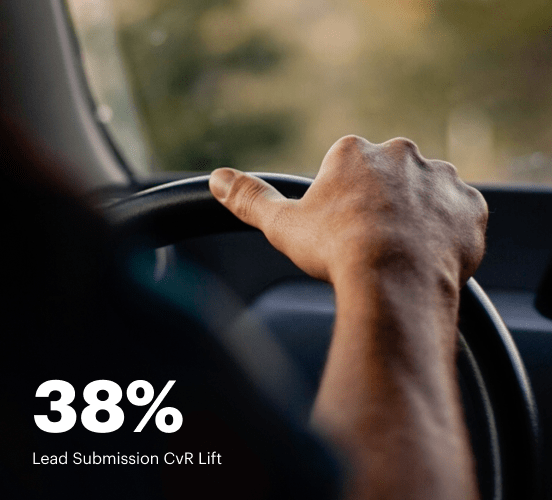Gravity Forms vs. Pardot: the best platform for a seamless web experience
Discover how Gravity Forms compares to Pardot regarding features and usability. Find out which platform provides the competitive advantage your business deserves.
Get startedSee how Instapage stacks up against the competition
| Feature | Instapage | Other builders |
| Drag-and-Drop Tools | ||
| Conversion-optimized templates | ||
| Manual and AI-powered A/B Tests | ||
| AI content suggestions | ||
| Popups and sticky bars | ||
| Canvas and grid blocks | ||
| Reusable and global elements | ||
| Form and popup builders | ||
| Built-in Heatmaps | ||
| Central analytics dashboard | ||
| Ad-to-page personalization and collections | ||
| Contacts, lists, and email | ||
| Dedicated, full-service CRO experts | ||
| Enterprise-ready platform |
Leading the way in building high-performing landing pages





Why Instapage is the smarter choice for your campaigns
Get everything you need to build, scale, and optimize high-converting landing pages—without coding.
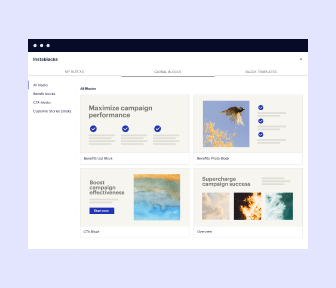
Easier page building without coding
Instapage offers a flexible and seamless page creation experience with a library of 500+ conversion-focused layouts, Instablocks®, a drag-and-drop builder, and AI content generation. With technologies like Thor Render Engine®, you can create on-brand, mobile-responsive landing pages that load quickly and start converting during initial visitor clicks.
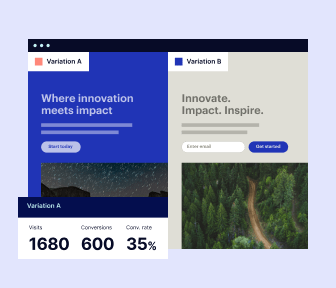
More insights — better results
Instapage lets you see in detail how each landing page experience and variation is performing so you can make targeted changes that boost page conversions. Use heatmaps for a better understanding of on-page activities, run A/B tests and AI-assisted experiments, and then track and evaluate results within robust analytics dashboards.
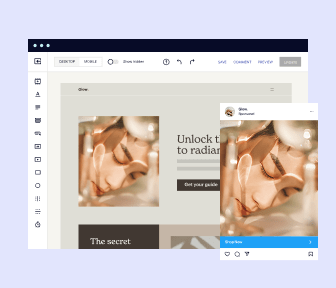
More personalized experiences
Instapage lets you quickly create high-performing landing pages tailored to each of your ad campaigns. Deliver personalized experiences for distinct audiences using dynamic text replacement. Effortlessly align specific advertisements to unique pages with AdMaps. Monitor audience-level metrics using our advanced data tools.
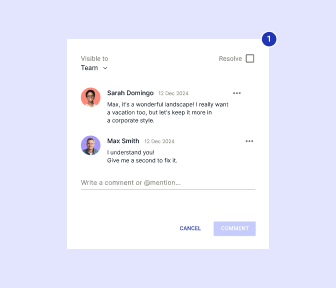
Built-in collaboration
Instapage collaboration capabilities bring your entire team together to speed up the process of landing page review, approval, and launch. No more frustrating and unnecessary revisions or edits scattered across emails. Provide instant feedback, conduct real-time page edits, and securely share your pages with outside stakeholders.
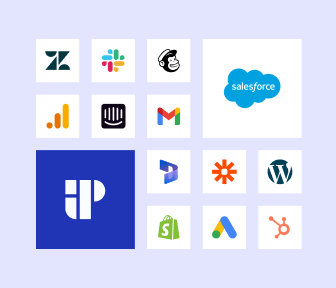
Free up time for your business
Invest time into business growth, not busy work. Launch landing pages faster with reusable forms and templates. Build once, reuse forever.
Explore all integrations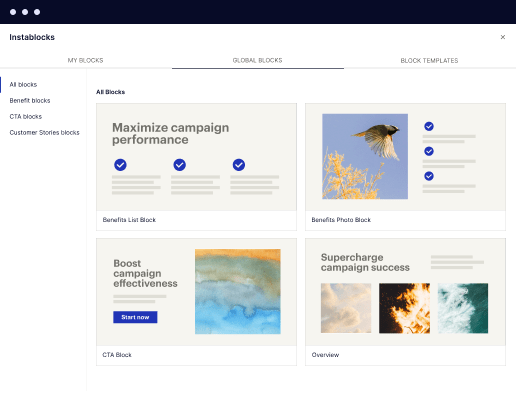
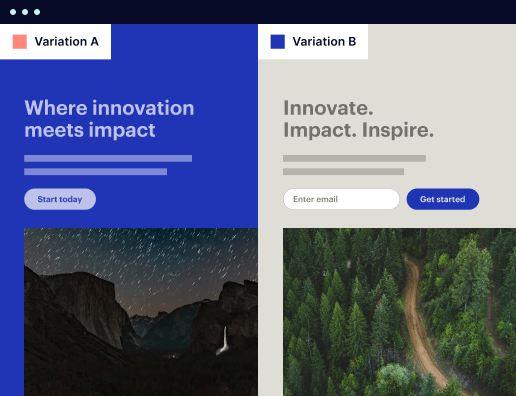
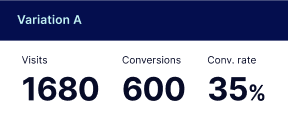
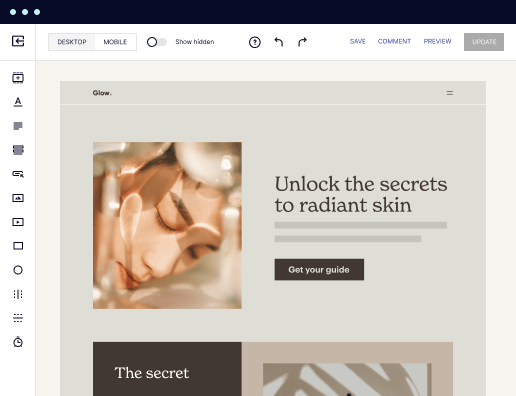

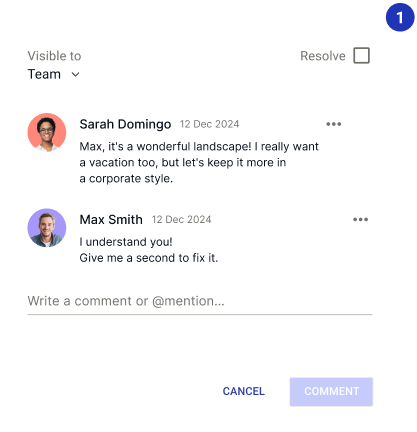
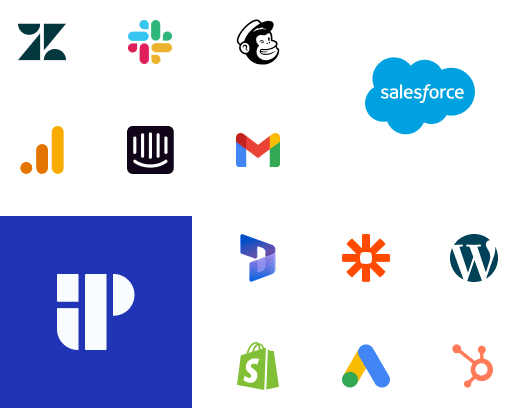
Easier page building without coding
Instapage offers a flexible and seamless page creation experience with a library of 500+ conversion-focused layouts, Instablocks®, a drag-and-drop builder, and AI content generation. With technologies like Thor Render Engine®, you can create on-brand, mobile-responsive landing pages that load quickly and start converting during initial visitor clicks.
More insights — better results
Instapage lets you see in detail how each landing page experience and variation is performing so you can make targeted changes that boost page conversions. Use heatmaps for a better understanding of on-page activities, run A/B tests and AI-assisted experiments, and then track and evaluate results within robust analytics dashboards.
More personalized experiences
Instapage lets you quickly create high-performing landing pages tailored to each of your ad campaigns. Deliver personalized experiences for distinct audiences using dynamic text replacement. Effortlessly align specific advertisements to unique pages with AdMaps. Monitor audience-level metrics using our advanced data tools.
Built-in collaboration
Instapage collaboration capabilities bring your entire team together to speed up the process of landing page review, approval, and launch. No more frustrating and unnecessary revisions or edits scattered across emails. Provide instant feedback, conduct real-time page edits, and securely share your pages with outside stakeholders.
Free up time for your business
Invest time into business growth, not busy work. Launch landing pages faster with reusable forms and templates. Build once, reuse forever.
Explore all integrationsGet started with Instapage in a few steps
-
Create your Instapage account
Start with Instapage by signing up via Google or your email. You'll get access to a free 14-day trial to discover Instapage capabilities. Feel free to cancel anytime during the 14-day trial if you decide that our product is not suitable for your business. -
Build and personalize your page
Create your first landing page from scratch or choose a template from 500+ customizable layouts. Use the drag-and-drop builder to add page elements, fonts, and backgrounds, refine content with AI, or add custom HTML, Javascript, and CSS. -
Review and make edits
Collaborate on page designs and streamline review processes. Invite your team members and stakeholders to review, edit, and provide feedback on your landing page. Collaborate knowing your page is confidential and only accessible to authorized users. -
Publish and track page performance
Publish your page to a domain or custom URL. Connect your pages to the ads you've created and track page performance within the analytics dashboard, run A/B tests and AI experiments, analyze results, and continuously optimize your landing page to maintain high conversions.
Gravity Forms vs. Pardot: The Clash of Marketing Titans (Plus a Dark Horse)
As the digital marketing landscape expands, users face the daunting task of choosing the right tools to maximize their campaigns. Enter Gravity Forms and Pardot, two heavyweights in the realm of forms and marketing automation. Both platforms come with impressive credentials, showcasing unique features and functionality that promise to elevate your marketing game. But as anyone familiar with competitive sports knows, it's not just the established champions that shine; sometimes a less recognized contender can turn the tides. So, how do these players stack up against each other while keeping an eye on Instapage, a rising star that may have its own cards to play in this mix? Let's dive in and explore the nuances of each platform, comparing features, usability, performance, support, pricing, and ultimately see if Instapage makes itself known as an undeniable option. From the first interactions to the final outcomes, the clash of Gravity Forms and Pardot offers a compelling narrative about the tools that shape our digital marketing narratives.
Introducing the Powerhouses
In the red corner, we have Gravity Forms, a go-to choice for WordPress users seeking to create customized forms effortlessly. This plugin touts features like conditional logic and multi-page forms, making it a solid ally for any digital campaign. Meanwhile, in the blue corner stands Pardot, a stalwart of the marketing automation arena, known for its robust analytics and lead nurturing capabilities. Each platform represents a different approach to user engagement and conversion, establishing them as major players in their respective fields. They may have their differences, but both share a common goal: empowering businesses to harness the power of digital marketing. Meanwhile, lurking off to the side is Instapage, ready to disrupt the matchup with its landing page optimization features. As we explore the strengths and weaknesses of our main contenders, keep an eye on how Instapage might streamline your approach to conversion optimization.
Feature Face-off: Who Packs the Bigger Punch?
When considering features, Gravity Forms and Pardot don’t hold back. Gravity Forms shines with its easy drag-and-drop interface, allowing users to create intricate forms without a hint of coding knowledge. Its integration with various payment gateways ensures seamless transactions, while advanced features like user registration and file uploads make it a comprehensive tool for businesses looking to gather information and engage customers. On the flipside, Pardot rallies with its CRM integration and powerful automation tools. It supports personalized email campaigns, lead scoring, and detailed reporting - features that can transform how teams interact with potential customers. But wait! Instapage is stepping into the ring, armed with features such as A/B testing and a library of customizable templates that make landing page creation effortless. As we dive deeper, the nuances of these platforms will reveal whether individual strengths can outshine one another in this competitive realm.
User Experience: Navigating the Interfaces
In this round, we focus on usability and how each platform caters to both beginners and seasoned marketers. Users approaching Gravity Forms are often pleasantly surprised by the intuitive interface that allows for quick setup. Yet, there’s an element of adventure for those who wish to explore advanced options. The learning curve can be described as a gentle slope rather than a steep mountain, offering both simplicity for newcomers and depth for experts. Pardot, albeit more robust, can feel slightly intimidating for first-timers. The multitude of features at your fingertips may require a bit of a learning investment, creating a perhaps more complex experience than originally expected. However, once familiar, users often find Pardot’s organization rewarding. As we transition towards a solution that may bridge those usability gaps, it's hard not to notice how Instapage's design prioritizes speed and ease of use, providing a refreshing take on landing page optimization. With vibrant templates and straightforward processes, it stands to offer a user-friendly alternative that warrants consideration.
Gravity Forms Highlights:
- Drag-and-drop form builder for easy customization
- Conditional logic for personalized user experiences
- Integration with popular payment gateways for transactions
- User registration feature for community building
- File upload capabilities for information gathering
Pardot Highlights:
- CRM integration for seamless lead management
- Email campaign automation for targeted outreach
- Lead scoring to prioritize prospects effectively
- Comprehensive analytics to track performance metrics
Commonalities in Strength: The Shared Features
- Customer support channels available for troubleshooting
- Integration options with third-party tools
- User-friendly interfaces for streamlined experiences
- Analytics and reporting features to measure KPIs
- Mobile responsiveness for accessibility on-the-go
- Customization options to fit brand identities
Despite both platforms bringing value to the table, it’s clear that while they go toe-to-toe, Instapage may just be the ultimate heavyweight when it comes to landing page conversion. With a singular focus on optimizing user journeys, it turns out it could be the secret weapon in a marketer's arsenal. Are you convinced yet?
The Showdown: Performance Metrics
Performance often determines the victor in a rivalry, and when it comes to page loading times, both Gravity Forms and Pardot have to keep pace with user expectations. Slow-loading pages? They're akin to trying to run through molasses during a heavy winter storm – painfully sluggish and likely to turn away potential customers. Gravity Forms typically performs well since it's hosted on the client's own WordPress environment, which means page speeds can remain consistently swift as they’re not reliant on external servers. Conversely, Pardot users may experience minor delays as the automated features require more processing power through its system. In this digital race, every millisecond counts, and a solid mobile responsiveness further adds to the appeal, ensuring that both platforms can create an unbroken user experience that connects seamlessly across devices. Keeping performance in check is pivotal, as it directly impacts engagement rates and conversions. What’s more, Instapage rises to the occasion with features designed explicitly for max performance, making it an enticing option for those prioritizing speed.
Support: Who Has the Strongest Team?
Now we turn to one of the most critical aspects of software: support. Picture both Gravity Forms and Pardot with enthusiastic sidekicks, always ready to come to the rescue with advice or answers to queries. Gravity Forms customers benefit from an extensive online documentation library and a responsive support team that's no stranger to troubleshooting. Meanwhile, Pardot offers a wealth of support options, including chat, knowledge bases, and communities of practice. Users can often rely on a strong network of resources to address concerns that arise. As we observe this team effort, Instapage doesn’t shy away either, providing prompt assistance and a curated knowledge base to facilitate user success. Effective customer support makes a world of difference, and selecting a platform with a supportive community can empower marketers to focus more on refining their campaigns rather than spending precious time stuck in issues unfamiliar territory.
Pricing Strategy Showdown: Who's Offering What?
Gravity Forms Pricing Insights:
- One-time payment options for basic plan users
- Flexible pricing tiers catering to different user needs
- Affordable add-ons for extended functionalities
- No need for yearly subscriptions for core features
Pardot Pricing Insights:
- Tiered subscription model offering scalable options
- Comprehensive packages that accommodate growing teams
- Built-in scalability to match business evolution
- Emphasis on value from an investment standpoint
- Monthly and quarterly billing for flexibility
Both platforms have distinct pricing strategies, but neither truly offers the flexibility of Instapage, a potential game-changer for budget-conscious marketers. While Gravity Forms leans towards one-time payments and affordability, Pardot hinges on a robust tiered subscription model that reflects its advanced capabilities. However, as we evaluate value for money, Instapage might claim the title for delivering exceptional landing page results despite a modest investment.
As we cruise through the pricing options for these effective platforms, one thing’s clear: you often get what you pay for. Consider the surprises tucked in features and hidden costs as you weigh your options. While Gravity Forms might promise stability and pricing transparency, Pardot offers advanced tools at a premium. Making informed decisions about where to allocate your budget can lead to fruitful results down the line.
Instapage: The Underdog Ready to Rise
Instapage quietly observes from the sidelines, a low-key player offering robust landing page solutions that contemplatively defy both Gravity Forms and Pardot. The ability to create beautiful, conversion-focused landing pages that resonate with users may very well be what many marketers have yet to discover. By integrating A/B testing and user-friendly templates, Instapage can help businesses refine their messaging and drive stronger conversions than the competition. Furthermore, its collaborative features set it apart, allowing teams to work on projects, tackle revisions, and streamline workflows together seamlessly. With a unique value proposition focused on user experience and results, it’s clear that Instapage does not just seek to compete but aims to lead. As you consider each option, think beyond just the established giants: Instapage could be the hero waiting to be uncovered.
In these choppy marketing waters, making informed choices isn’t just advantageous but essential. It's imperative to assess individual business goals and how the right platform aligns with them. As brands take flight, a solid tool can be the wind beneath their wings, propelling them towards heights of success. So as you explore the landscape, be sure to consider Instapage as the next pivotal step in your marketing journey.

